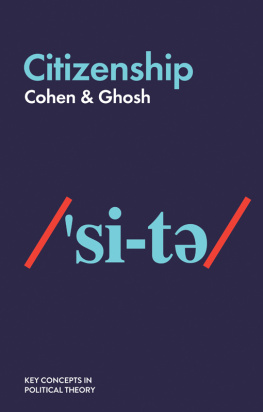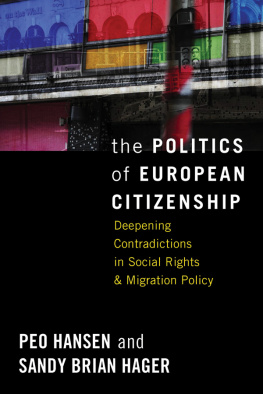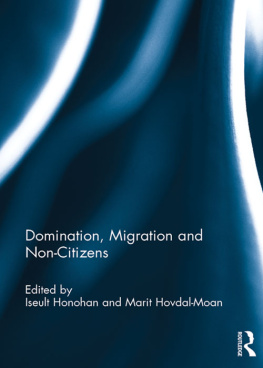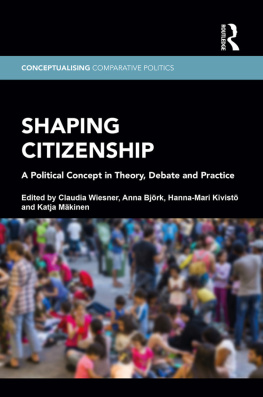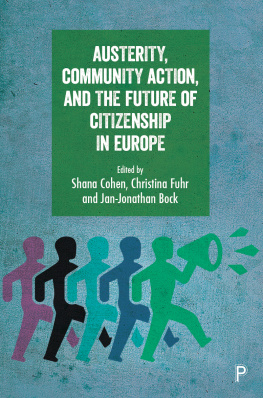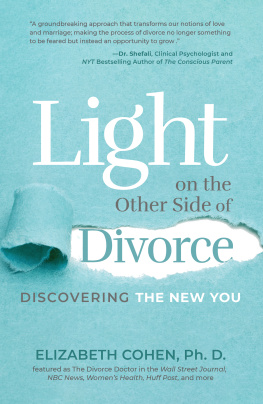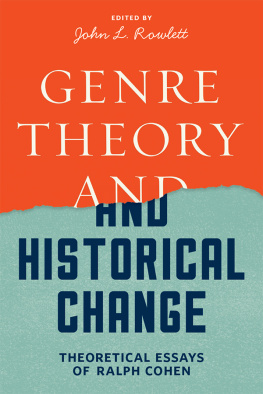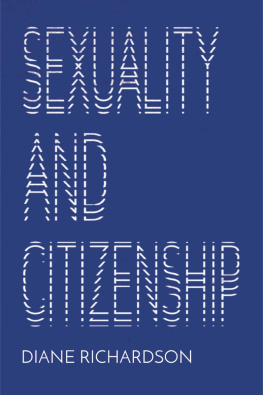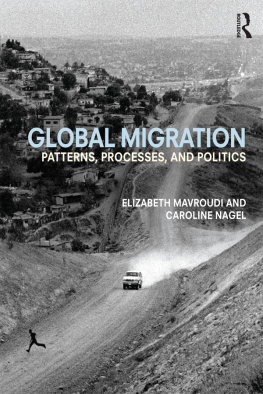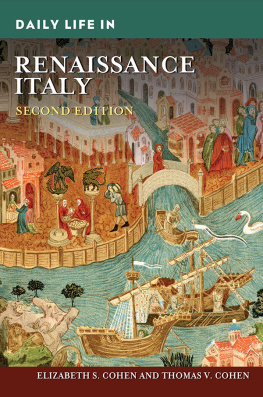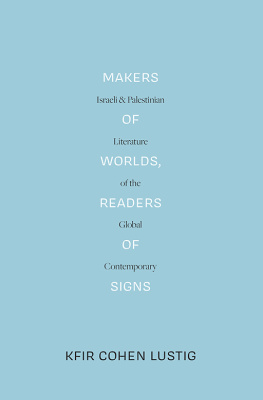Cohen Elizabeth F. - Citizenship
Here you can read online Cohen Elizabeth F. - Citizenship full text of the book (entire story) in english for free. Download pdf and epub, get meaning, cover and reviews about this ebook. year: 2019, publisher: Polity Press, genre: Politics. Description of the work, (preface) as well as reviews are available. Best literature library LitArk.com created for fans of good reading and offers a wide selection of genres:
Romance novel
Science fiction
Adventure
Detective
Science
History
Home and family
Prose
Art
Politics
Computer
Non-fiction
Religion
Business
Children
Humor
Choose a favorite category and find really read worthwhile books. Enjoy immersion in the world of imagination, feel the emotions of the characters or learn something new for yourself, make an fascinating discovery.
- Book:Citizenship
- Author:
- Publisher:Polity Press
- Genre:
- Year:2019
- Rating:5 / 5
- Favourites:Add to favourites
- Your mark:
- 100
- 1
- 2
- 3
- 4
- 5
Citizenship: summary, description and annotation
We offer to read an annotation, description, summary or preface (depends on what the author of the book "Citizenship" wrote himself). If you haven't found the necessary information about the book — write in the comments, we will try to find it.
Citizenship — read online for free the complete book (whole text) full work
Below is the text of the book, divided by pages. System saving the place of the last page read, allows you to conveniently read the book "Citizenship" online for free, without having to search again every time where you left off. Put a bookmark, and you can go to the page where you finished reading at any time.
Font size:
Interval:
Bookmark:

- Charles Jones and Richard Vernon, Patriotism
- Roger Griffin, Fascism
- Peter J. Steinberger, Political Judgment
- Fabian Wendt, Authority
- Eric Mack, Libertarianism
- Elizabeth F. Cohen and Cyril Ghosh, Citizenship
Elizabeth F. Cohen
Cyril Ghosh
polity
Copyright Elizabeth F. Cohen and Cyril Ghosh 2019
The right of Elizabeth F. Cohen and Cyril Ghosh to be identified as Author of this Work has been asserted in accordance with the UK Copyright, Designs and Patents Act 1988.
First published in 2019 by Polity Press
Polity Press
65 Bridge Street
Cambridge CB2 1UR, UK
Polity Press
101 Station Landing
Suite 300
Medford, MA 02155, USA
All rights reserved. Except for the quotation of short passages for the purpose of criticism and review, no part of this publication may be reproduced, stored in a retrieval system or transmitted, in any form or by any means, electronic, mechanical, photocopying, recording or otherwise, without the prior permission of the publisher.
ISBN-13: 978-1-5095-2225-5
ISBN-13: 978-1-5095-2226-2 (pb)
A catalogue record for this book is available from the British Library.
Library of Congress Cataloging-in-Publication Data
Names: Cohen, Elizabeth F., 1973- author. | Ghosh, Cyril, author.
Title: Citizenship / Elizabeth Cohen, Cyril Ghosh.
Description: Cambridge, UK ; Medford, MA : Polity Press, 2019. | Includes bibliographical references and index.
Identifiers: LCCN 2018056354 (print) | LCCN 2018061325 (ebook) | ISBN 9781509522293 (Epub) | ISBN 9781509522255 (hardback) | ISBN 9781509522262 (pbk.)
Subjects: LCSH: Citizenship. | Citizenship--Philosophy.
Classification: LCC JF801 (ebook) | LCC JF801 .C588 2019 (print) | DDC 323.6--dc23
LC record available at https://lccn.loc.gov/2018056354
Typeset in 10.5 on 12 Sabon
by Fakenham Prepress Solutions, Fakenham, Norfolk NR21 8NL
Printed and bound in Great Britain by CPI Group (UK) Ltd, Croydon
The publisher has used its best endeavours to ensure that the URLs for external websites referred to in this book are correct and active at the time of going to press. However, the publisher has no responsibility for the websites and can make no guarantee that a site will remain live or that the content is or will remain appropriate.
Every effort has been made to trace all copyright holders, but if any have been overlooked the publisher will be pleased to include any necessary credits in any subsequent reprint or edition.
For further information on Polity, visit our website: politybooks.com
Most of us generally know what we mean when we use the term citizenship. We know, for example, that having citizenship of a country entitles a person to a set of rights, such as the right to a passport issued by that country. A passport, in turn, authorizes a person to reenter their country from outside its borders without any additional documentation, such as a visa. We also know that adult citizens of a country usually have the right to vote in the local, regional, and federal/general elections of that country.
But, if you look carefully, you will find that some countries also allow long-term legal permanent residents, who are not citizens, to vote at least in some elections. Conversely, there are some citizens and nationals who are not allowed to vote in the country in which they reside. Equally, having citizenship in any given country also means that one has a set of obligations to that political community, such as the duty to serve on a jury to decide the fate of ones peers, the duty to pay taxes on income, and so on. These duties vary from country to country: some have no jury trial while others make it mandatory for everyone to vote or serve in the military at a predetermined age.
Citizenship is therefore not an easy term to define. The rights and duties associated with citizenship are not uniformly distributed among citizens around the world. Nor are noncitizens uniformly denied all the rights that citizens have in any given context. In other words, the rights and duties associated with citizenship appear in different combinations, depending on time, place, and context.
Consider, as a hypothetical example, the Robinson family living in Louisville, KY, United States, on July 1, 2014:
Tiffany Robinson was born in Louisville in 1971. Being an adult citizen who has birthright citizenship, Tiffany is entitled to the full range of rights associated with citizenship in the United States. George, Tiffanys husband, was also born in Louisville in 1971. He has a prior conviction (2009) for armed robbery. So, even though he is an adult citizen just like Tiffany, and even though he has birthright citizenship just as Tiffany does, he can nonetheless not vote in elections because the state of Kentucky denies all convicted felons the right to vote. Their daughter, Diana Robinson, was born in Louisville in 1990. She self-identifies as lesbian and is in a long-term relationship with Victoria, whom she would like to marry. Like her parents, Diana is an adult citizen with birthright citizenship. But she cannot get married to Victoria in the state of Kentucky because, at this time (2014), even though the federal government would recognize her marriage as valid in the eyes of the law, the state of Kentucky would not. Dianas younger brother, Bobby Robinson, was born in 1995. He is currently serving in the military. Bobby is an adult citizen with birthright citizenship, just like Tiffany and George and Diana, but he too will be denied at least in some cases (such as those involving the Uniform Code of Military Justice) at least one right: the right to a civil trial because he is a member of the armed forces of the United States.
Now consider the Kowalski family also living in Louisville, KY, United States, on July 1, 2014:
Lew Kowalski was born in Warsaw in 1976. He came to the United States in 2006 on a work permit. His wife Gabriela and their son Alexander came to the United States in August 2007 on dependent visas. Gabriela was born in Warsaw in 1975 and Alexander was born in Warsaw in 2000. Shortly after Gabriela moved to the US, she and Lew had a daughter, Kamila, who was born in Louisville in 2008. Unfortunately, however, that same year, very soon after Kamila was born, Lew died of a sudden heart attack. When he was alive, Lew was a nonresident alien and temporary worker and, as a result of this, he enjoyed many rights in the United States. But, because he was never a citizen, he could not vote in US elections. After his death, Gabriela and Alexander became unauthorized migrants because their stay in the United States was dependent on their ties to Lew (who was now deceased). As a result of this, both of them now live in the United States with a highly curtailed set of rights. Alexander could have qualified as a DACA recipient had he arrived in the United States before June 15, 2007, but he came here about six weeks after that. On the other hand, Kamila, who has birthright citizenship in the United States, will be entitled to the full set of rights associated with citizenship as soon as she becomes eighteen. As on July 1, 2014, however, she has many rights but she cannot yet vote in US elections because she is not yet eighteen.
What these examples indicate is that, while some people have full citizenship rights in any given political community at any given time, there are others who either have semi-citizenship or are without any citizenship rights at all. This can be described more formally, as: Even though citizenship is commonly misunderstood as a categorical and binary concept (one either is or is not a citizen), in reality, one experiences citizenship as a gradient or slope. Thus, depending on the context, one might be said to have more or less of it.
Next pageFont size:
Interval:
Bookmark:
Similar books «Citizenship»
Look at similar books to Citizenship. We have selected literature similar in name and meaning in the hope of providing readers with more options to find new, interesting, not yet read works.
Discussion, reviews of the book Citizenship and just readers' own opinions. Leave your comments, write what you think about the work, its meaning or the main characters. Specify what exactly you liked and what you didn't like, and why you think so.

